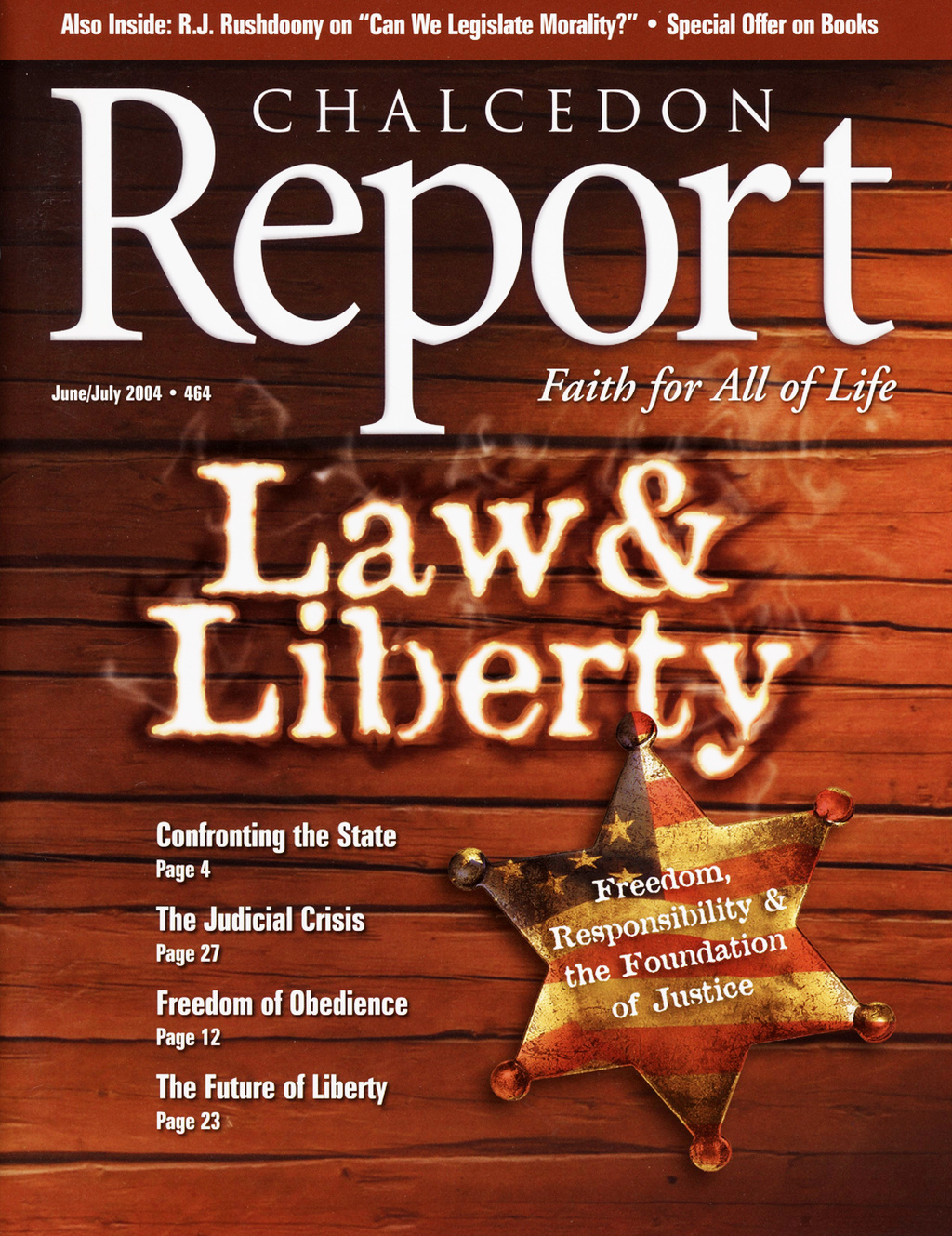
Magazine Issue
June/July 2004 Articles:
Can We Legislate Morality?

- R. J. Rushdoony

Why We Confront Statism

- Mark R. Rushdoony
Of Liberty and License
- Greg Uttinger
The Law of Christ and of God
- Kenneth L. Gentry, Jr., Th.D.
Law and Liberty: Its Application to the Arts
- Ian Hodge
The Freedom of Obedience
- Christopher B. Strevel
Home Educationand Future Christian Leadership
- Samuel L. Blumenfeld
Frederick Nymeyer: A Pioneer of Christian Libertarianism
- Timothy D. Terrell
Rushdoony's Greatest Statement
- Jim West
Galatians and the Spirit: How Love Fulfills the Law
- Stephen R. Turley
The Presbyterian and the Transvestite: Francis Makemie and American Liberty
- Roger Schultz
A Glorious Future of Liberty
- Eugene Clingman
The Christian Testimony of Francis Scott Key
- Rick Williams
Judicial Crisis: Rushdoony Warned Us

- Lee Duigon